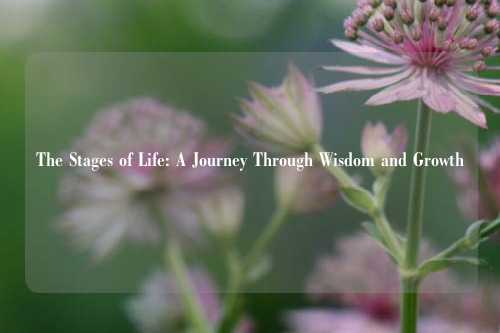Introduction
Age is more than just a number; it is a reflection of our experiences, growth, and the passage of time. From infancy to old age, each stage of life brings unique challenges, opportunities, and lessons. Society often places undue emphasis on youth, but every age has its own beauty and significance. This article explores the different phases of life, the psychological and biological changes that accompany them, and how we can embrace aging with grace and wisdom.
The Stages of Life
Infancy and Childhood (0-12 Years)
The earliest stage of life is marked by rapid physical and cognitive development. Infants learn to crawl, walk, and speak, while children develop social skills, emotional intelligence, and foundational knowledge.

- Biological Changes: The brain grows rapidly, motor skills develop, and the immune system strengthens.
- Psychological Development: Children form attachments, develop curiosity, and begin understanding the world around them.
- Challenges: Vulnerability to illness, dependence on caregivers, and the need for a safe and nurturing environment.
Adolescence (13-19 Years)
Adolescence is a period of transition from childhood to adulthood, characterized by hormonal changes, identity formation, and increased independence.
- Biological Changes: Puberty brings physical transformations, including growth spurts, sexual maturation, and brain restructuring.
- Psychological Development: Teenagers seek autonomy, develop personal values, and experience emotional volatility.
- Challenges: Peer pressure, self-esteem issues, and the struggle to balance freedom with responsibility.
Early Adulthood (20-39 Years)
This stage is often associated with career building, relationships, and personal growth.
- Biological Changes: Physical health peaks, but metabolism begins to slow down.
- Psychological Development: Individuals establish careers, form long-term relationships, and develop financial independence.
- Challenges: Work-life balance, societal expectations, and the pressure to achieve milestones like marriage and homeownership.
Middle Adulthood (40-64 Years)
Middle age is a time of reflection, stability, and sometimes, midlife crises.
- Biological Changes: Signs of aging appear—gray hair, wrinkles, and decreased muscle mass. Women experience menopause, while men may face declining testosterone levels.
- Psychological Development: Many reassess life choices, focus on legacy, and mentor younger generations.
- Challenges: Health concerns, caregiving for aging parents, and preparing for retirement.
Late Adulthood (65+ Years)
Often referred to as the "golden years," this stage can be fulfilling if approached with the right mindset.
- Biological Changes: Increased risk of chronic illnesses, reduced mobility, and cognitive decline in some cases.
- Psychological Development: Wisdom, acceptance of life’s journey, and a focus on meaningful relationships.
- Challenges: Loneliness, financial security, and maintaining independence.
The Perception of Age in Society
Society often glorifies youth while stigmatizing aging. Advertisements promote anti-aging products, and older individuals may face ageism in the workplace. However, cultures that respect elders, such as many Asian societies, demonstrate the value of experience and wisdom.
Ageism and Its Impact
Ageism—discrimination based on age—affects both young and old. Younger people may be dismissed as inexperienced, while older individuals might be seen as outdated. Combatting ageism requires recognizing the contributions of all age groups.
The Beauty of Aging
Aging is not just about decline; it brings wisdom, resilience, and deeper relationships. Studies show that happiness often increases after middle age, as people prioritize meaningful experiences over material success.
How to Age Gracefully
-
Stay Physically Active
Regular exercise slows aging, improves mobility, and boosts mental health. -
Maintain Social Connections
Strong relationships reduce loneliness and increase longevity. -
Keep Learning
Lifelong learning keeps the brain sharp and fosters a sense of purpose. -
Eat a Balanced Diet
Nutrient-rich foods support physical and cognitive health. -
Practice Mindfulness
Meditation and gratitude enhance emotional well-being.
Conclusion
Age is a journey, not a destination. Each stage of life offers unique gifts and challenges. Instead of fearing aging, we should embrace it as a natural and enriching process. By valuing every phase of life—from the boundless energy of youth to the profound wisdom of old age—we can create a society that honors the beauty of growing older.
As the saying goes, "Do not regret growing older. It is a privilege denied to many." Let us celebrate age in all its forms and recognize that every year is a step toward a richer, more meaningful existence.